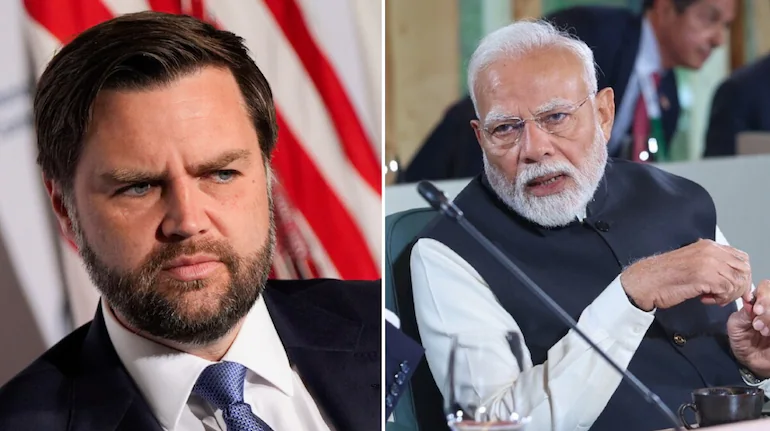Now Reading: Tensions Escalate as Iran’s Khamenei Declares ‘Battle Begins’ After Trump’s Warning
-
01
Tensions Escalate as Iran’s Khamenei Declares ‘Battle Begins’ After Trump’s Warning
Tensions Escalate as Iran’s Khamenei Declares ‘Battle Begins’ After Trump’s Warning

Global tensions flared once again as Iran’s Supreme Leader Ayatollah Ali Khamenei declared that “the battle begins,” in a fiery response to former US President Donald Trump’s demand for Iran’s unconditional surrender. The exchange has sparked renewed fears of conflict in West Asia, with potential ripple effects that could impact India’s economy, energy security, and expatriate population in the region.
Iran Responds Strongly to Trump’s Remarks
In a bold and defiant address, Khamenei asserted that Iran would not yield to American pressure or threats. His statement came shortly after Donald Trump publicly called for Iran to surrender unconditionally, suggesting a hardline approach to the long-standing US-Iran standoff.
Khamenei’s declaration, interpreted as both a warning and a call to mobilize, signals a shift in Iran’s posture as it faces increasing international scrutiny and sanctions.
US-Iran Conflict: A Brief Background
Tensions between Iran and the US have remained high since the US withdrawal from the 2015 nuclear deal under Trump’s presidency. The situation worsened with the assassination of Iranian General Qasem Soleimani and a series of retaliatory moves from both sides.
Although the Biden administration had attempted to re-engage diplomatically, recent developments indicate that political rhetoric may be reverting to a confrontational stance, especially with Trump eyeing a comeback in the upcoming US elections.
Impact on India and Tier 2 Cities
For India, particularly Tier 2 cities with high remittance inflows and dependence on Gulf economies, any escalation in the Middle East raises serious concerns.
Cities like Nagpur, Surat, and Kochi have a significant number of families with members working in Iran, Iraq, and the UAE. Renewed conflict could endanger the safety of Indian expatriates and disrupt money flows that support many middle-class households.
In addition, India imports a major portion of its crude oil from the Middle East. Escalation in the region often causes fuel prices to spike, directly affecting transportation, small businesses, and household budgets in smaller towns.
Oil Prices and Economic Ripple Effects
Oil markets have already reacted with caution, with price fluctuations observed following the verbal exchange. For Indian transporters, small-scale industries, and agricultural businesses that rely on diesel-powered machinery, a price rise could have a disproportionate impact.
Tier 2 cities, where cost sensitivity is higher and public transport infrastructure is limited, could be among the worst-hit if global crude prices remain volatile in the coming weeks.
A Global Flashpoint with Local Effects
While the rhetoric between the US and Iran plays out on the world stage, its consequences are felt on the ground in countries like India. From rising fuel costs to threats to worker safety abroad, the domino effect of geopolitical friction is real and immediate.
As international diplomacy hangs in the balance, Indians—especially in smaller cities—are once again bracing for uncertainty.
Conclusion:
Ayatollah Khamenei’s statement marks a critical moment in global diplomacy, one that could escalate or de-escalate depending on how world leaders choose to act next. For India, the priority remains stability in the region—not only for economic reasons but also for the safety and welfare of its diaspora. As the world watches closely, the hope is that cooler heads will prevail before words turn into warfare.

























